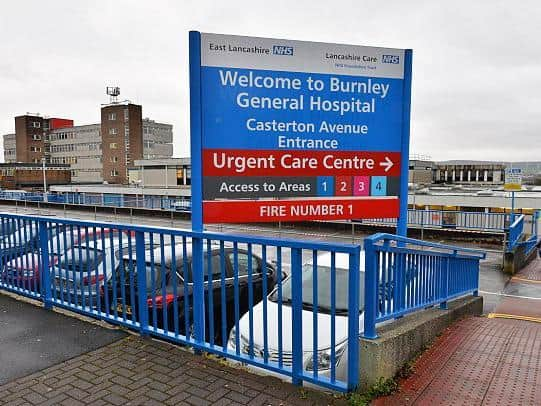Fewer patients waiting for routine treatment at East Lancashire Hospitals
and live on Freeview channel 276
NHS statistics show 26,978 patients were on the waiting list for non-urgent treatment under the care of a consultant at East Lancashire Hospitals NHS Trust at the end of March.
However, this was down from 28,210 waiting at the end of February, and 29,828 in March 2020.
Advertisement
Hide AdAdvertisement
Hide AdIt contrasted with the picture across England where 5 million people were waiting for treatment at this time – the highest number since records began in August 2007.


That figure was 4.7 million at the end of February.
The Royal College of Surgeons said the task ahead for NHS workers was vast following an "unimaginably difficult year".
Vice president Tim Mitchell said: “With the number of Covid-19 patients in hospital at the lowest it has been since September last year, the recovery of planned surgery is fortunately now well underway.
"Still, any prospect of chiselling down the waiting list, which is now 5 million people, is premature, because new patients are presenting daily.
Advertisement
Hide AdAdvertisement
Hide Ad"The task ahead is vast and many of the staff that support surgeons to operate, anaesthetists and nurses, are running on fumes after an unimaginably difficult year helping out on Covid-19 wards.”
NHS rules state that patients referred for non-urgent treatments under the care of a consultant should start treatment within 18 weeks.
The number of people waiting at least a year for treatment across England has risen to 436,100 – the highest monthly figure since August 2007.
At East Lancashire Hospitals Trust, 1,235 patients had been waiting this long as of the end of March.
Advertisement
Hide AdAdvertisement
Hide AdThe figures were released on the same day the NHS announced it will spend £160 million on an initiative to find new ways of tackling the vast backlog of care.
Money will be given to hospitals for mobile scanning trucks, carry out surgery in evenings and at weekends and to provide "virtual wards" where patients can be continually monitored while outside hospital.
Amanda Pritchard, NHS chief operating officer, said: "The additional support announced today will help us create a blueprint for continuing that progress over summer and beyond, in a way that doesn’t heap extra pressure on staff, so that as many people as possible benefit from the world-class care the NHS provides.”
The investment has been welcomed by the NHS Confederation, which represents organisations in the health service.
Advertisement
Hide AdAdvertisement
Hide AdBut Danny Mortimer, chief executive of the body, said there were "bigger, bolder" moves the Government needed like providing more capital funding to NHS trusts to take to help with demand.
Martin Hodgson, Deputy Director at East Lancashire Hospitals NHS Trust said: “We are delighted to be in a very strong and positive position with regards to reducing treatment waiting times for our patients following a prolonged period of non-urgent activity being delayed due to Covid-19.
“Balancing the priorities of people requiring Covid and non-Covid related care has been extremely challenging throughout the last 14 months but we continued to prioritise the most urgent cases in line with speciality and national guidance wherever possible.
"Also, our non- urgent activity has begun to return to ‘normal’ levels and for some procedures is notably exceeding what we have traditionally undertaken. This means our patients can now begin to see their wait to receive treatment reduce.
Advertisement
Hide AdAdvertisement
Hide Ad“We also announced last week that we are delighted to be working with our neighbouring Trusts to make further significant reductions to our collective waiting lists over the next three months as part of a national accelerated restoration programme.
“We do know how hard this has been for people who have patiently waited, sometimes in very difficult circumstances, and thank them for their continued patience as we do our best to restart the care of as many people as possible, as quickly as possible.”